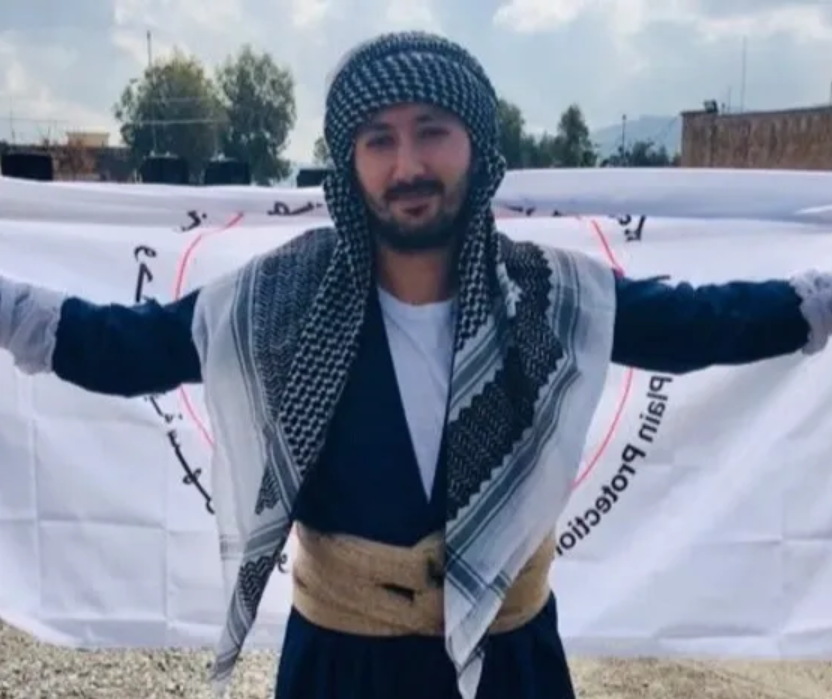The Suraye Declaration of Unity
Chaldeans, Assyrians, Syriacs, & Maronites Unite
By Chris Salem
There is a tale of a once-fractured group of people with thirteen different identities, thirteen flags, thirteen different currencies, and thirteen states. They were all once divided, yet they were all one people.
The British army exploited their differences and used their divisiveness to oppress them. One day, the divided group of people decided enough was enough. They gathered in a hot room on a summer day—July 4th, 1776, to be exact—and decided to focus on their similarities and ignore their differences. They made a long list of everything they agreed on, which became the Declaration of Independence.
With their newfound unity, the thirteen colonies had the strength to overwhelm the might of the British military, which was the strongest military in the world at that time. Eventually, the thirteen colonies transformed into the fifty United States. While our Middle Eastern ancestors for the last five centuries were busy complaining about different identities, young nations like America became united and powerful.
The division brought us to the point of near extinction. Every generation before ours focused on our differences and ignored our similarities. On December 16, 2022, we reached a turning point. Four names, four flags, and five patriarchs united under a single identity: Suraye.
Suraye can be defined as a group of Middle Eastern Christians linguistically rooted in Aramaic.
Aramaic consists of two major subgroups, Eastern Aramaic and Western Aramaic. These subgroups split further into different dialects. The Eastern subgroup consists of the Chaldean (Sureth) dialect and Assyrian (Surayt and Urmian) dialects. There are also southern dialects of Aramaic spoken by Mandeans, who are followers of John the Baptist.
The differences between the dialects lie in pronunciation and loan words from surrounding majorities, such as Kurds, Turks, Arabs, and Persians. Every subgroup in the Eastern dialect uses the word “Shlama” to greet people, although it technically means “peace.” In the Western subgroups, the general rule is to pronounce almost every letter ‘A’ like it is the letter ‘O’. As a result, they greet people by saying “Shlomo” instead of “Shlama”.
For more than 500 years, the Chaldean and Assyrian churches were at odds with one another. One thousand years before that, the Syriacs were the first to splinter off. Shortly after, the Syriacs were further divided into Catholic and Orthodox subgroups.
For the first time in at least five centuries, the five Patriarchs from these groups came together and jointly declared five “issues of common interest” that we are one people with one history, language, heritage, and shared identity. They plan to use their combined power to save and protect our identity.
The five “issues of common interest” are: (1) Syriac spirituality; (2) the Syriac presence in the Middle East and pastoral challenges; (3) the Syriac presence in the diaspora; (4) partnership in testimony; and (5) the common Syriac heritage. The diaspora is any land inhabited by a group outside their original homeland.
These five Patriarchs have made history. The last generation that could not set aside their differences will forever be remembered as the last generation that failed.
Notably missing were the Patriarchs of the Melkite Church and the Ancient Church of the East, both of whom are linguistically rooted in Aramaic.
The Patriarchs emphasized the importance of the ancient Suraye heritage that unites us and constitutes a rich sacred historical inheritance stemming from their historical unity, single Sureth language, and common church and liturgical rites. They established a committee to help preserve the language at an academic level worldwide.
The Patriarchs reaffirmed their commitment to preserving and spreading this heritage and emphasized the importance of cooperation among the churches at various levels. They also made plans to establish a committee to work out church and liturgical differences, which could pave the way for one united Church.
The statement also touches on the ongoing challenges faced by the Syriac community in the Middle East, particularly the issue of migration caused by conflicts and difficult living conditions. The Patriarchs expressed their determination to continue to support and care for their spiritual children in these regions and to work towards reducing the negative effects of migration.
The statement also highlights the concerns of the Patriarchs regarding the dispersion of their flock in diaspora countries and their determination to continue to support and care for them, despite the distance.
The Patriarchs further emphasized the importance of transmitting the Syriac heritage and culture to future generations and stressed the role of the churches in providing spiritual guidance and support to the communities.
They outlined a specific plan of action in a joint statement and called for cooperation and collaboration among the churches. Working together to support the presence of our communities in the Middle East, and working together to preserve and spread our culture and heritage.
Our ancient aculture and heritage are our anchors, rooted in the very soil of our ancestors. It is a legacy that must be cherished, protected, and passed on to future generations. Through unity, our culture and heritage will stay intact. We must work together to preserve and spread it, to keep the light of our faith bright.
This heritage shapes us, it is the glue that holds our communities together and our birthright. But without cohesion, this heritage is at risk of fading away, lost in history. Together, we must work to nurture it, amplify its message, and keep the light of our faith shining. The Patriarchs have pointed the way by calling for cooperation and collaboration among the churches.
They remind us that our heritage is a precious inheritance that must be defended and passed on with care.
Chris Salem and his wife Ranna are co-founders of Nineveh Rising, a non-profit dedicated to preserving the culture of people that live in the Nineveh Plain, Iraq, and helping Christians worldwide survive and thrive.

